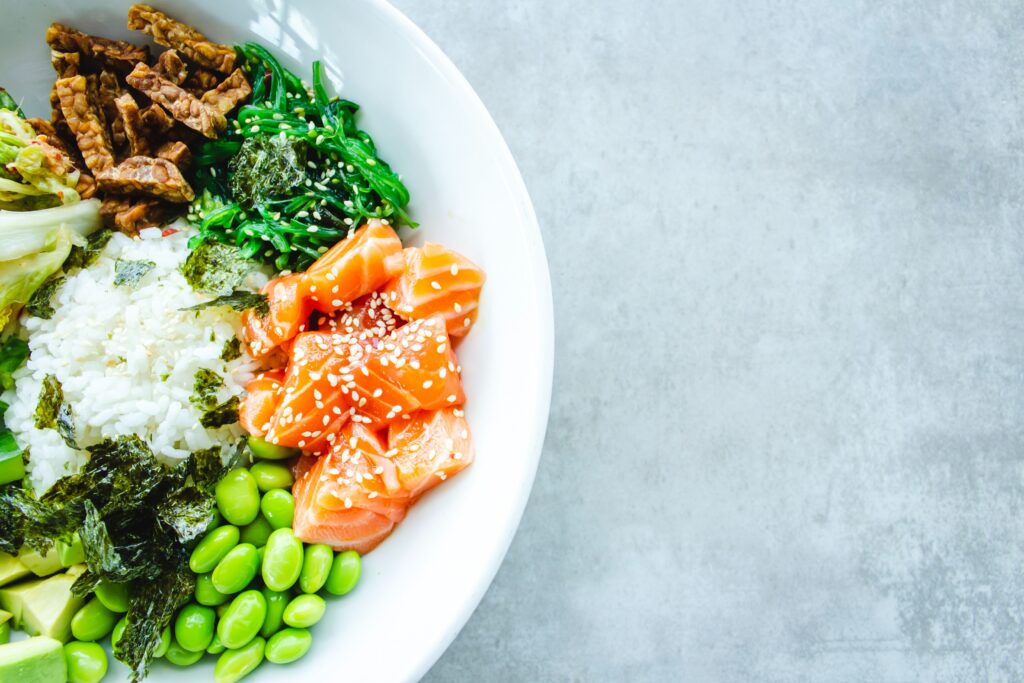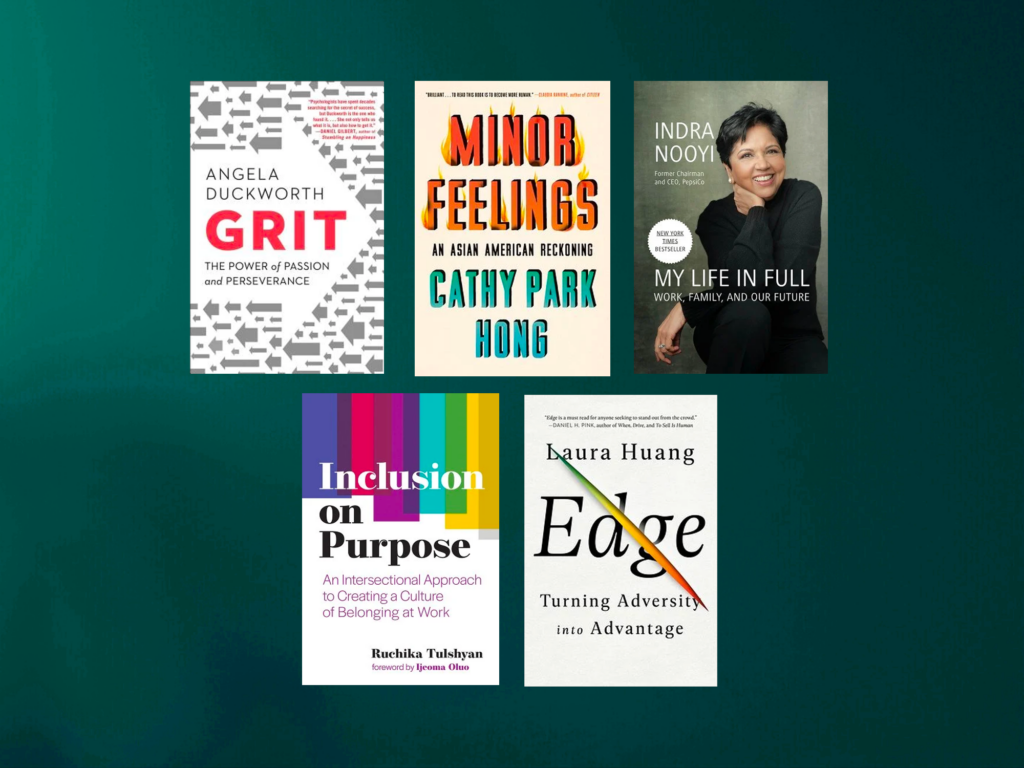How to create healthy habits that stick in 2023

New Year’s resolutions are notoriously difficult to follow through on. Why? Most people set a goal with no plan in place, so inevitably they fail. One consistent New Year’s goal that millions pledge like clockwork: improving health. For some, that means committing to a weight loss goal. For others it’s all about boosting movement and exercise. For anyone who wants to succeed in their mission to feel better, it should start (and heavily revolve) within the kitchen and within our minds.
MBAchic caught up with licensed dietitian Laura Ligos, MBA, RDN, CSSD to learn why certain food-related resolutions are doomed from the start. When she’s not busy creating customized meal plans for her clients, she uses her real food based blog The Sassy Dietitian to offer up her nutritional expertise. She shared the top healthy eating habits everyone should adopt in 2023, and why one misleading TikTok health trend is leaving a particularly bad taste in her mouth.
Professionals agree that the most successful resolutions are the ones that are not extreme or lofty.
“When we become extreme with our dieting behaviors we end up going all in only to be all out within days or weeks or maybe even hours,” explains Ligos.
Think about it. It’s a scenario that plays out over and over again. Overly ambitious, unsustainable goals snowball into feelings of overstimulation or inadequacy and result in major burnout. Rinse and repeat. If the definition of insanity is doing the same thing over and over and expecting different results, then doing things differently this year is one method to make changes that stick. Instead of going on a restrictive diet, Ligos suggests it’s much more sustainable to aim for simple, gradual healthy habit changes. Small, incremental yet effective changes can add up to a big evolution, like committing to cooking one additional meal from home each week. Instead of a pasta enthusiast dropping down to a strict keto diet, adding one extra fruit or vegetable to each meal is a start worth sticking to.
“Less is often more when we are building new habits,” Ligos says. “Once you start building those new habits you can always add more.”
Eat a satisfying and filling breakfast
Satisfying and filling – meaning that coffee and crumbly breakfast bar that you unwrap in record speed on your morning commute won’t cut it.
“By eating a satisfying breakfast, ideally with 20-30 grams of protein, you start your day off fed and fueled,” says Ligos.
Consider overnight oats or premade egg bites for some healthy and low-effort options to stay fueled even if time is stretched thin. These simple, protein-packed meals can be prepped at the beginning of the week and stored for days. Customize and swap out new fruits in oatmeal or veggies in eggs to add variety to each morning meal and prevent boredom.
Drink more water
Simple, effective, what are you waiting for? The reality is, everyone knows they need to be drinking more H20 but few follow through. Nearly 75% of adult Americans are chronically dehydrated. Aim to become a part of that all star 25%.
Over time, chronic dehydration can lead to many complications, such as fatigue, joint pain, headaches, ulcers and high blood pressure.
Considering the body is made up of 60 percent water, staying hydrated can help muscles work more efficiently and help the kidneys and liver function. Just how much each person needs on a daily basis is going to depend on a lot of a variety of factors.
“The amount will depend on the person,” explains Ligos. “So I usually like to suggest looking at your average intake now and increase by 8 ounces per day for a week.”
Water helps break down food to help the body absorb nutrients. Without it, most of the nutrients we eat would not be processed or used by the body. So in short, not drinking enough is a straightforward path to self-sabotaging any health goal for the New Year and beyond.
Sit down to eat
Raise your hand if you’re guilty of eating on the go. Gobbling down lunch in between typing out email responses has become standard in toxic “always-on” work culture. Maybe you even seek out hands-free options like smoothies or shakes so you can work while you eat. Commit to changing up this bad habit in 2023. Make a goal to sit down no matter what’s on the menu.
“We are always so on the go and we often don’t realize what we are eating which may lead to overconsumption but also doesn’t help with digestion,” Ligos suggests.
Research has shown that mindful eating can lead to greater psychological well being, increased pleasure when eating, and body satisfaction.
According to the Harvard School of Public Health, those embracing mindful eating should schedule calendar time to only eat: a lunch break away from a computer screen, or a reserved time for dinner with family. Otherwise it’s easy to form bad habits like distracted eating which is associated with anxiety, overeating and in some cases, weight gain.
Toxic trends to toss
As more people turn to the internet for recipes, healthy eating changes, and inspiration, a toxic trend has been growing and gripping its digital audience. The viral “what I eat in a day” videos popularized on TikTok have exploded in 2022, posed as a glimpse into what a user is eating from the second they wake up until it’s time for bed.
Ligos says she doesn’t like ‘what I eat in a day’ videos because this type of content can be incredibly triggering to viewers, regardless of any prior eating disorder history.
“Often when people are sharing what they ‘ate in a day’ videos it’s not truly a typical day for them (many will even admit this) and then we are left comparing ourselves to a day that’s not even real.”
Another risk of watching these videos? With the anonymity of the internet, users often don’t know enough about one another to fully grasp why what one person eats in a day works for them but may not work for everyone.
“We don’t know their health history, their movement, their sleep,” explains Ligos. “I’m totally fine if people share meals or snacks that they eat just not the whole day as it just becomes a comparison game that just isn’t helpful.”
For those who find themselves falling into the social media diet culture conundrum, experts suggest taking subtle yet important steps to eliminate future triggers and meet healthy goals. One example? Filtering the accounts you follow.
“Unfollow those who don’t make you feel your best or trigger you,” explains Ligos. “If you find certain content triggering you can also filter out content by letting the app know you don’t want to see something or just by unfollowing that person or people.”
By eliminating exposure to triggering content, it will become easier to focus on individual gains and wins in each unique health journey. Additionally, social media users can set time limits on their favorite apps to cut down on mindless scrolling time and stop joy-robbing through comparison.
“Spend more time listening to your own body’s needs,” suggests Ligos. “You can also fill your feed with those who are helping to spread the message of food freedom and body acceptance.”
What are your favorite accounts to follow on social media for healthy eating and living inspiration?

Photo by Louis Hansel







